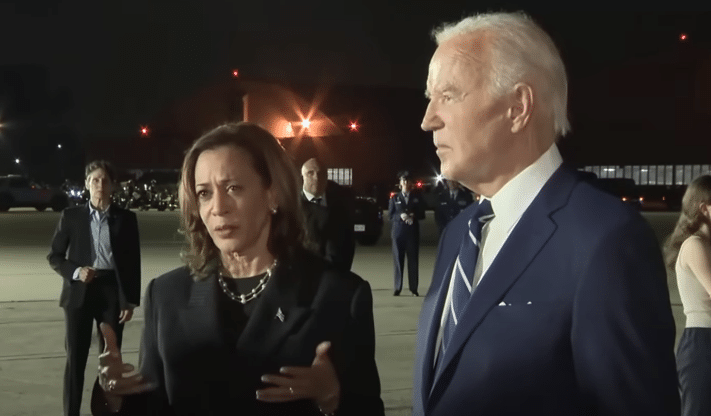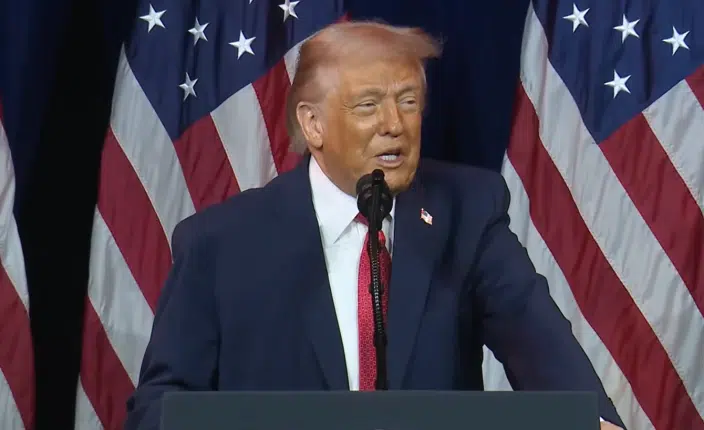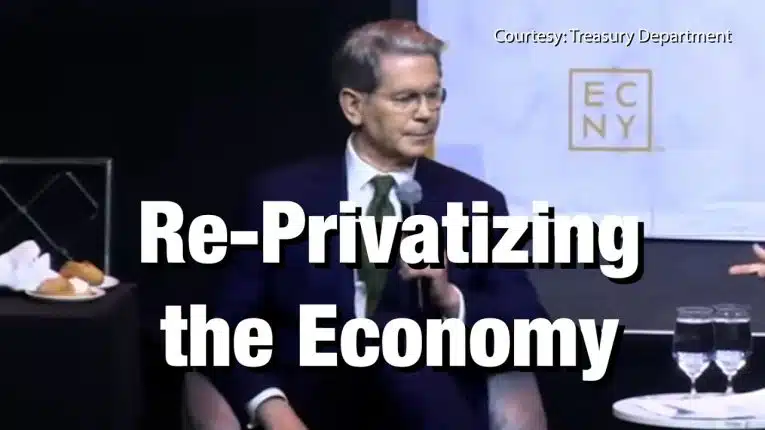
Consumer inflation ticked up another 0.2 percent in July, and cooled slightly on the 12-month average to 2.9 percent, amid drops in energy prices as demand continues to fall, according to the latest data from the Bureau of Labor Statistics.
This is what usually happens after peak employment and peak inflation, whereby the economy tends to overheat and American households max out their credit, which they have, as the annual growth of consumer credit that peaked at 9.9 percent in April 2022 is now down to a scant 1.8 percent in June, according to Federal Reserve data.
In the meantime, as the overall rate of inflation cooled from its 9.1 percent peak in June 2022, unemployment is up 1.47 million from its Dec. 2022 low to now 7.16 million, its highest level since Nov. 2021.
But although the rate of inflation is slowing down, its crushing impact is still being felt. Since Feb. 2021, consumer inflation is up 18.95 percent, while personal incomes including government transfer payments are only up 18.2 percent. American households simply have not gotten ahead in the current economy under President Joe Biden and Vice President Kamala Harris.
Almost always, that’s bad news for the incumbent party. In modern history, the thing one-term presidents in general had — Herbert Hoover, Gerald Ford, Jimmy Carter, George H.W. Bush and former President Donald Trump — were recessions. But so did Richard Nixon, Ronald Reagan and Barack Obama, and they all went on to win reelection relatively easily. For Hoover and Trump, the difference likely was the sheer magnitude of the recessions, with millions of jobs lost, and for Ford, Carter and Bush, the consistent theme was inflation outpacing incomes for an extended period of time, just like right now.
The economy might be the only reason the 2024 president race is close right now, in my opinion, giving Trump and Republicans a fair chance of unseating the incumbent party. That said, when Harris entered the race, she caught up to Trump and got a bump after replacing Biden as the Democratic nominee after Trump had been leading national polling averages since Sept. 2023.
In fact, no Republican hasn’t come close to leading national polls since George W. Bush in 2004, when Bush won the popular vote 50.7 percent to John Kerry’s 48.3 percent. That was 20 years ago, but Bush led the majority of polls that predicted accurately he would win the popular vote and the election.
In 2008, Barack Obama led the vast majority of polls over John McCain almost the entire year and won in a landslide in both the popular vote 53 percent to 46 percent and the Electoral College easily. In 2012, it was the same story, with Obama again leading the vast majority of the polls, although Obama’s lead over Mitt Romney was a bit less, 51 percent to 47 percent.
In 2016, Hillary Clinton similarly led about 85 percent of the national polls, accurately predicting she would win the popular vote 48 percent to 46 percent, but state polls except for firms like Trafalgar Group failed to detect Trump’s surge in the swing states of Pennsylvania, Michigan and Wisconsin. Also, polls generally understated Trump’s support by about 2.7 percentage points (they understated Clinton too by 1.4 percentage points).
In 2020, a similar trend emerged, where Joe Biden led 97 percent of national polls, which accurately predicted he would win the popular vote 51 percent to 47 percent. But once again, polls understated Trump’s support, this time by 2.9 percentage points, and in the Electoral College Biden barely won with a scant 43,000 vote margin in Wisconsin (23,000), Arizona (10,000) and Georgia (10,000), which if they had gone the other way, would have tied the Electoral College 269 to 269, sending the election to the House of Representatives where Trump would have prevailed.
So, understating Trump in polls has averaged 2.8 percentage points over 8 years of polling, and understating Democrats averaged 0.8 percentage points. Fast forward to 2024 and the polling averages show Harris with a 48 percent to 47 percent lead. But if you account for the “shy” Trump voter in polls — Trafalgar certainly will in the state polls! — that might mean Trump is either tied or ahead in the national popular vote, I estimate 50 percent to 49 percent in the two-way given the clear history. There are other candidates obviously and so the 5-way is worth considering as well but to keep it apples to apples (third party candidates can fizzle down the stretch), looking at the two-way race can still be helpful.
In the meantime, for the first time in 20 years, the national popular vote is in play. No Republican who has won the popular vote has ever lost the Electoral College, but it happened to Democrats in 1824, 1876, 1888, 2000 and 2016.
All that said, unseating a first-term incumbent party regardless of the nominee is difficult, who historically win 66 percent of the time. The years the first term incumbents won regardless of the nominee were 1792, 1804, 1832, 1856, 1864, 1896, 1916, 1924, 1936, 1956, 1964, 1972, 1984, 1996, 2004 and 2012. And the years the incumbent party lost after one term regardless of the nominee were 1828, 1844, 1848, 1852, 1888, 1892, 1980 and 2020.
First-term incumbent election campaigns, regardless of the nominee, are a referendum on the incumbents. Trump is emphasizing and showing to prospective voters that things are objectively not better off than they were four years ago. Americans are behind on their bills and have maxed out our credit cards amid the continued crushing inflation, and now unemployment is increasing. The crappy economy is one of the only reasons Trump ran again, and is one of the only reasons he or whoever the nominee would have been even has a chance to beat the incumbents in 2024, based on the clear data. As James Carville implored in 1992, “It’s the economy, stupid!”
The clear history gives Trump and Republicans a chance and, again, defeating incumbents is not easy and in fact is unlikely under most circumstances. It will likely require all-hands-on-deck, exhibiting confidence, not weakness. Overall, the election will come down to whether enough people have confidence in the incumbents or not as, again, it’s a referendum on Biden and Harris.
On the polls, the recent cause for concern from some commentators, Trump was leading the majority of the national polls this cycle against Biden, again, suggesting the popular vote is at play for the first time in two decades, and completed a 49-state sweep in a competitive primary, uniting his party when he wasn’t even the sitting president, crushing his competition, and giving the united Republicans the best possible chance of winning in 2024. This puts the Trump campaign in an incredibly strong position considering they are attempting to unseat a first-term incumbent administration, but it might benefit from stronger surrogates who can articulate issues, project confidence (not weakness!) and make the case. If they can’t make the case and are weak, get the crybabies off the trail!
Robert Romano is the Vice President of Public Policy at Americans for Limited Government Foundation.






